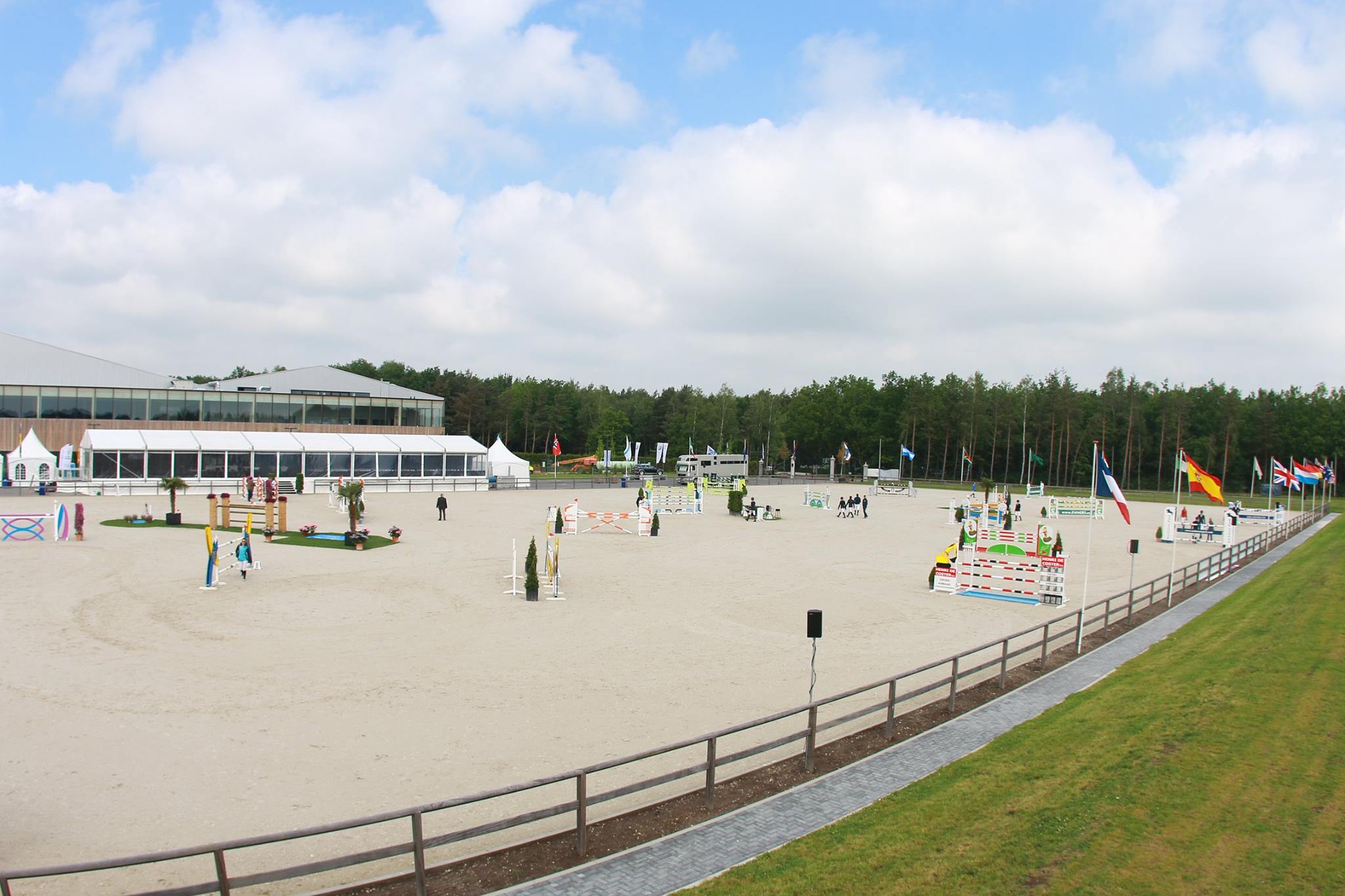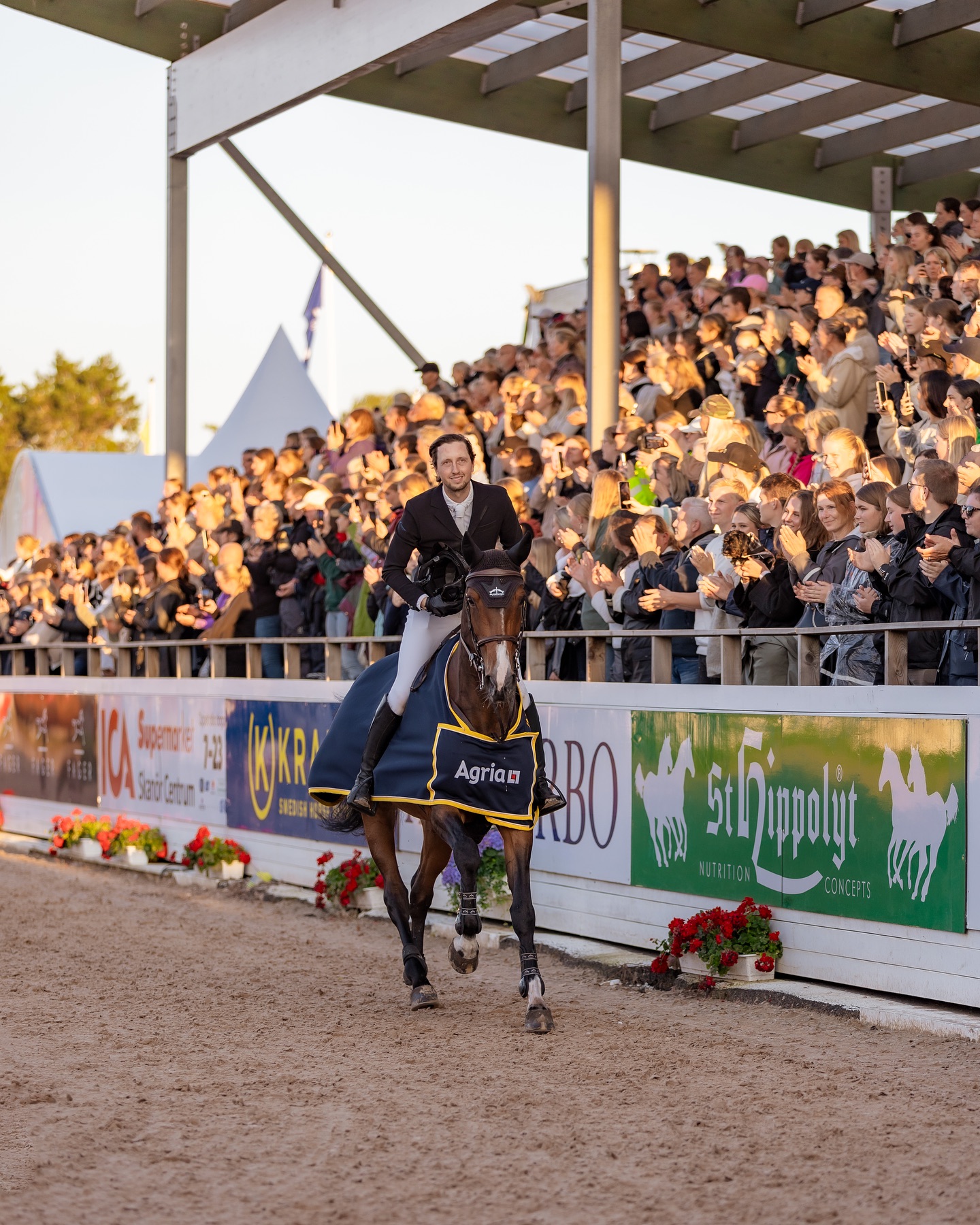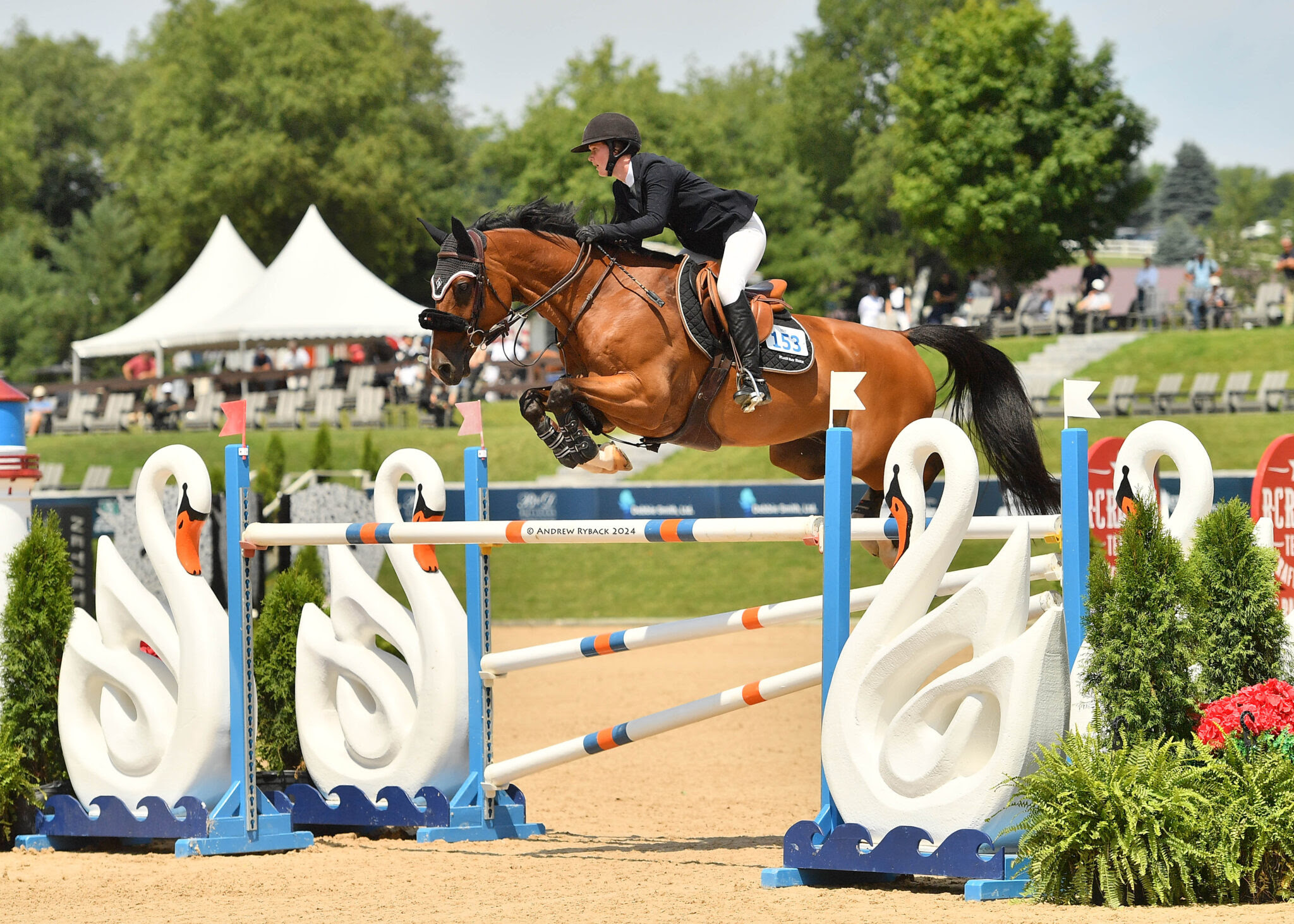"Organizing in rhino times obviously brings a new challenge but I think the team at Sentower Park has already demonstrated on several occasions over the past year that we can respond quickly to changing circumstances," De Rossi starts. "The COVID measures are already well established with everyone and of course they should still not be lost sight of. So a social distance still has to be followed on the Sentower Park grounds, everyone over 12 has to wear a mouth mask, they are asked to observe hygiene measures, ... I don't think this is new information for anyone," she continues.
"However, the biggest challenge was to organize our competition in such a way that we could also comply with the EHV-1 measures imposed by the FEI. We ourselves have made enormous efforts to make competitions at Sentower Park possible again, and I expect that the riders will also understand the seriousness of the situation and will therefore follow with these measures. In the stables different rules than usual will apply: there will be one-way traffic, it is not allowed to saddle up or groom in the corridor (horses must remain in their stables for this), stable doors must remain closed, ... Horses that are on the same transport will also be in a group in the stables. Their own 'horse bubble' so to speak. Only essential personnel will be allowed in the stables. Grooms and owners fall under this, partners and other family unfortunately do not," says De Rossi. "If there are more than 400 horses on the show grounds and those horses also spend the night there, a negative PCR test is required for all those horses. This also applies to horses that are not participating in the competition that weekend and, for example, have one week of rest during a tour but remain at the competitions."
"The arrival at the competition will also look a little different than what we are used to. Horses will be assigned their stables as always. They will be examined in that box by a licensed veterinarian. Each horse will also receive a 'Temperature Monitor Sheet' on which the horse's temperature must be noted twice a day. Little tip for the grooms: don't forget to pack your own thermometer before you come to our show. Dogs are no longer allowed in the stables because they can transmit the disease. They are only allowed in the parking lot, but they have to stay on a leash.
"The FEI has also asked for quarantine stables to be provided, which of course we have done," the coordinator continued. "We hope, of course, that we will not need these quarantine stalls... But if a horse does need to be quarantined, we are well provided for! Our quarantine stables are grouped into four stables per unit. At the entrances and exits of the quarantine stalls will be protective equipment for authorized personnel. Also, horses must step over special disinfection mats before entering the quarantine stables. These special disinfection mats can also be found in strategic places on the premises so that horse owners can make use of them if they wish. We also have a team of veterinarians on standby to monitor the situation day and night and to intervene if necessary. Everywhere on the premises there will be disinfection gel and places where several horses regularly come, such as the washing areas, will be disinfected several times a day. The same happens with the treating boxes," she adds. "This disinfection also applies to the stables: after every weekend our stables are disinfected by a specialized company. They use a virus killing product for this purpose". "It was quite a task to make our terrain COVID- and EHV-proof but I can proudly say that we succeeded in doing so", concludes De Rossi. "We are very much looking forward to welcoming riders to our arena next week and seeing some action again. The fact that this is a youth competition is especially nice. The younger riders see their youth in quarantine ticking away and we hope to offer them a ray of hope in these difficult times.



